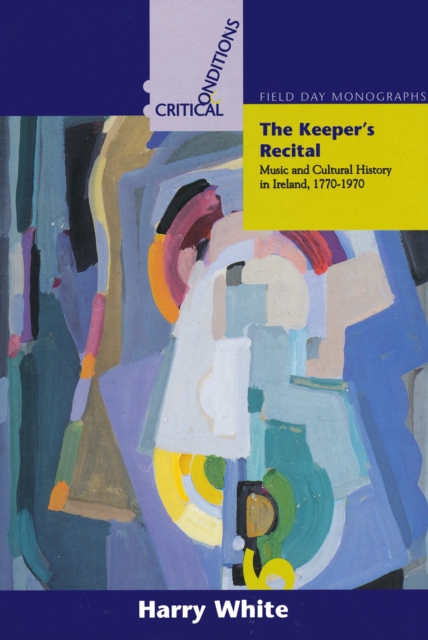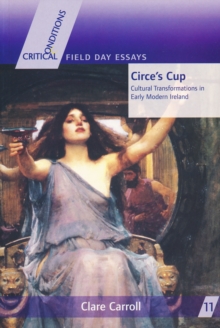
The Keeper's Recital : Music and Cultural History in Ireland 1770-1970 Paperback / softback
by Harry White
Part of the Critical Conditions: Field Day Essays and Monographs series
Paperback / softback
Description
This is the first study to survey the development of musical thought in modern Irish cultural history.
It registers the function of music as a dynamic agent in the history of Irish ideas in the period 1770 - 1970.
Ireland's verbally dominated culture has depended on music throughout its evolution, but the presence of music - to say nothing of its impact on the formation of Irish cultural thought - has been hitherto scarcely recognised.
The Keeper's Recital attempts to redress this neglect by examining the role of music in Ireland's notably polarised cultural matrix by means of three prevailing themes: the integrity of sectarian culture, the political expression of cultural autonomy and the symbolic force of celticism.
The book traces the development and cultural dislocation of music in Ireland from the late eighteenth century to the death of Sean Ó Riada and it thereby identifies the function and status of music in those cultural and political ideologies of nationalism, colonialism and revival which it helped to foster.
Although The Keeper's Recital is primarily concerned with such figures as Turlough Carolan, Edward Bunting, Thomas Moore, Thomas Davis, George Petrie, Douglas Hyde, Heinrich Bewerunge, Charles Villiers Stanford, Arnold Bax and Sean Ó Riada, its scrutiny of the condition of music in Irish cultural history notably embraces Irish political and literary thought throughout the period 1770-1970.
While not offered as a history of music in Ireland, it engages with the principal themes of that history in order to identify and distinguish between the symbolic power of Irish music (particularly in terms of its preservation) and its failure to generate a durable aesthetic of comparable significance to that which infused the Literary Revival.
Information
-
Available to Order - This title is available to order, with delivery expected within 2 weeks
- Format:Paperback / softback
- Pages:227 pages
- Publisher:University of Notre Dame Press
- Publication Date:01/07/1998
- Category:
- ISBN:9780268012328
Information
-
Available to Order - This title is available to order, with delivery expected within 2 weeks
- Format:Paperback / softback
- Pages:227 pages
- Publisher:University of Notre Dame Press
- Publication Date:01/07/1998
- Category:
- ISBN:9780268012328









